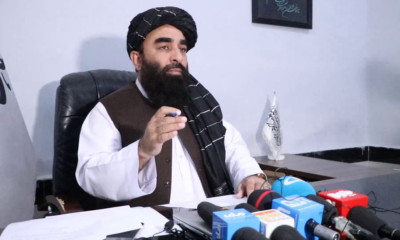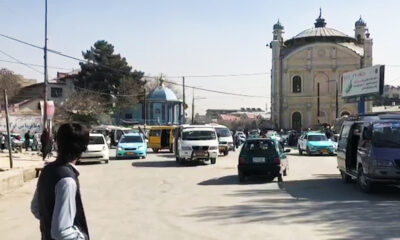Latest News
Ministers meet with ICC prosecutor to discuss crimes against Afghans

The Prosecutor of the International Criminal Court (ICC) Fatou Bensouda and her team met a high-level delegation from Afghanistan, including Foreign Minister Haneef Atmar, in a bid to achieve justice for the Afghan people by holding perpetrators of “atrocity crimes” accountable.
According to a statement issued by the ICC, a full day of discussions were held with officials from the foreign ministry, the justice ministry, the Attorney General’s Office, the Supreme Court and the National Security Department.
At the meeting, detailed presentations provided further insights into investigative steps taken or planned by the Afghan authorities and an opportunity for the ICC to seek clarifications on a number of discussion points, the statement read.
Bensouda and Atmar pledged to work together.
“I have great admiration for the courage and resilience of the people of Afghanistan who have withstood tremendous adversity through decades of conflict and violence. They deserve tangible justice without delay”, stated Bensouda.
“I look forward to continuing our constructive exchanges with the Government of Afghanistan, which was exemplified by today’s discussions, as we work towards determining how justice may best be served through joint collaborative efforts with full commitment to our respective independent duties and responsibilities under the Rome Statute”, she added.
Atmar in turn said “this was a historic and very constructive meeting. The Government of Afghanistan is grateful to the ICC Prosecutor for hosting our high-level delegation to address the investigation and prosecution of all international crimes in Afghanistan”.
He also said that “at this decisive moment for our country’s future, we have made encouraging progress in charting the way forward to ensure that no crimes will go unpunished. With our government’s unwavering commitment to human rights and justice, we are confident that with full cooperation with the Prosecutor, we can jointly advance the cause of justice for all of the victims of the long and devastating conflict.”
Zabihullah Karimullah, Afghanistan’s Attorney General who also participated at the meeting added: “Our meeting with the ICC Prosecutor was very useful for discussing the constructive ways in which we can cooperate with the Office of the Prosecutor and for sharing information about the cases that Afghanistan is investigating and prosecuting at all levels. We look forward to continuing our positive exchanges and collaboration to guarantee that there will be no impunity for international crimes.”
The ICC meanwhile said it was appreciative of Afghanistan’s expressed commitment and the steps taken towards addressing accountability for atrocity crimes and securing justice for victims in Afghanistan in close collaboration with the ICC.
The ICC conducts independent and impartial preliminary examinations, investigations and prosecutions of the crime of genocide, crimes against humanity, war crimes and the crime of aggression.
Since 2003, the Office has been conducting investigations in multiple situations within the ICC’s jurisdiction, namely in Uganda; the Democratic Republic of the Congo; Darfur, Sudan; the Central African Republic (two distinct situations); Kenya; Libya; Côte d’Ivoire; Mali; Georgia, Burundi; Bangladesh/Myanmar, Afghanistan and Palestine.
The Office is also currently conducting preliminary examinations relating to the situations in Bolivia; Colombia; Guinea; the Philippines; and Venezuela; and has recently completed its preliminary examinations of the situations in Ukraine and Nigeria, which are pending requests to seek authorisation to proceed to investigation.
Latest News
IEA: Special circle in Pakistan has launched mission to destabilize region
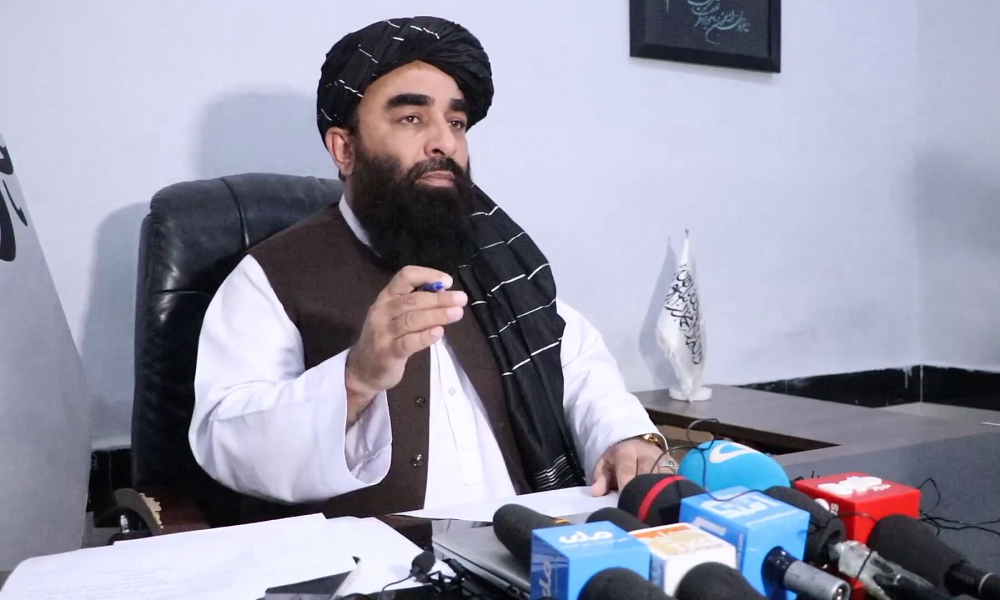
The spokesperson of the Islamic Emirate of Afghanistan, Zabihullah Mujahid, says that a special circle in Pakistan has launched a mission to destabilize the region following the recent escalation of conflicts between the two countries.
Speaking at a press conference in Kandahar province on Friday, Mujahid urged regional countries to put a stop to the “troublemakers.”
Mujahid stated that Afghan air forces had precisely targeted Pakistani military centers.
In response to a question about what position the Islamic Emirate would take if regional countries called for a halt to the war, he said that the Islamic Emirate seeks a peaceful resolution of issues and that they have previously held several rounds of negotiations and discussed the matters; however, the Pakistani side has not been prepared to resolve the issues through peaceful dialogue.
The spokesperson of the Islamic Emirate emphasized that the Pakistani side consistently attempts to fabricate pretexts for war and links its internal issues to Afghanistan.
Mujahid further stated that Pakistani aircraft are still patrolling Afghanistan’s airspace.
Last night, following retaliatory attacks by Afghan forces on Pakistani military facilities across the Durand Line, Pakistan’s military regime carried out airstrikes on locations in three Afghan provinces.
Mujahid confirmed that Pakistani forces bombed certain areas in Kabul, Kandahar, and Paktia.
He added that during the fighting that began Friday night, 13 Afghan soldiers were “martyred” and 22 others were wounded.
The Islamic Emirate of Afghanistan described the operation as retaliation for Pakistan’s previous attacks in Nangarhar and Paktika earlier this week.
The Afghan Ministry of National Defense also announced that in these clashes, Afghan forces killed 55 Pakistani soldiers, captured several others, and seized two military headquarters along with 19 security posts.
Latest News
Turkey launches initiative to diffuse Afghanistan-Pakistan tension
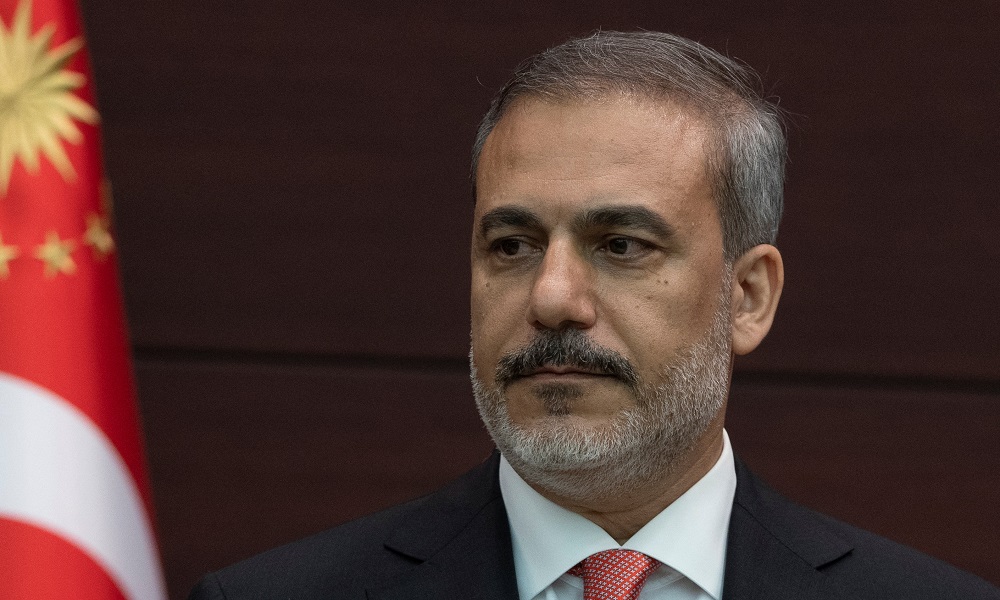
Turkish Foreign Minister Hakan Fidan on Friday exchanged phone conversations with both Afghan and Pakistani top diplomats as well as other regional prominent actors amid growing tension between the two neighboring countries.
Fidan spoke on the phone with Afghan Foreign Minister Amir Khan Muttaqi and Pakistani Foreign Minister Mohammed Ishaq Dar, Turkish media reported citing sources.
The initiative came after the two countries attacked each other.
Turkish media reported that Fidan also spoke with Qatari Foreign Minister Sheikh Mohammed bin Abdurrahman Al Thani and Saudi Foreign Minister Prince Faisal bin Farhan to discuss the recent developments between Afghanistan and Pakistan.
Latest News
Afghan Air Force conducts airstrikes in Islamabad, other cities
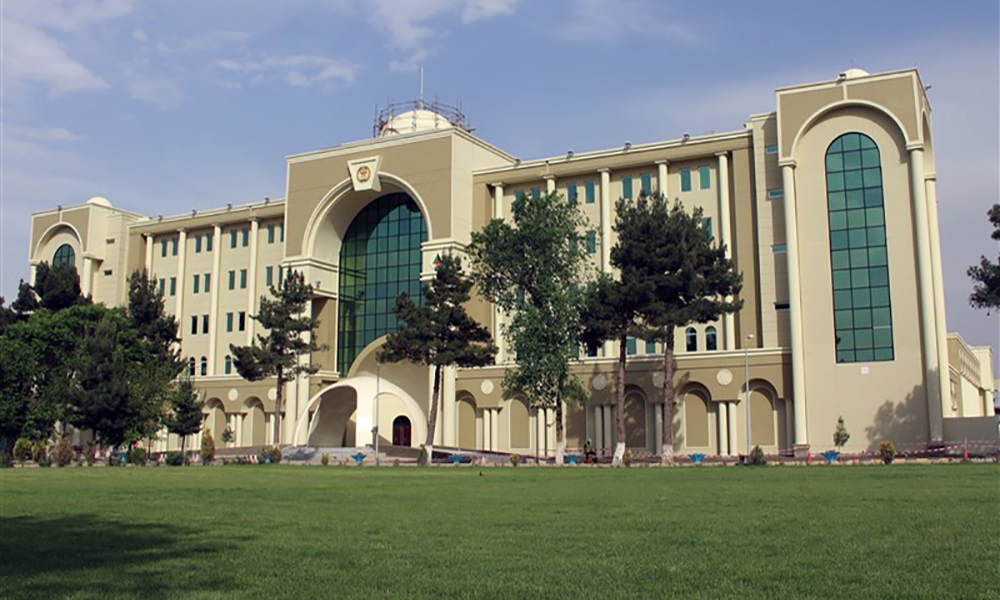
Afghan Air Force conducted airstrikes against Pakistani military targets in Islamabad and other cities on Friday, Afghanistan’s Ministry of National Defense said.
The strikes were carried out at 11:00a.m. near Faizabad in Islamabad, targeting a military camp, the Nowshera Cantt, Jamrud Military Colony, and Abottabad.
According to the Ministry, the operations successfully hit key military sites, centers, and facilities. The strikes were conducted in response to Pakistani military air raids carried out last night in Kabul, Kandahar, and Paktia.
-

 Latest News5 days ago
Latest News5 days agoRussia estimates up to 23,000 terrorists present in Afghanistan
-

 Latest News4 days ago
Latest News4 days agoIEA rejects Russia’s claims of foreign militants in Afghanistan
-
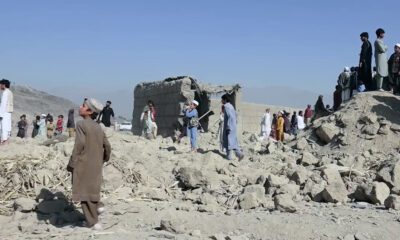
 Latest News5 days ago
Latest News5 days agoUNAMA reports civilian casualties from Pakistani airstrikes in Afghanistan
-

 International Sports4 days ago
International Sports4 days agoAFC Champions League Elite gears up for Round of 16 as league stage concludes
-

 Sport3 days ago
Sport3 days agoRichard Pybus appointed as head coach of Afghanistan’s national cricket team
-

 Latest News5 days ago
Latest News5 days agoUK’s Reform party pledges visa ban affecting Afghanistan and five other states
-

 World5 days ago
World5 days agoMexican military kills cartel boss ‘El Mencho’ in US-backed raid
-

 World2 days ago
World2 days agoIndia’s Modi backs Israel in address at Israeli parliament


